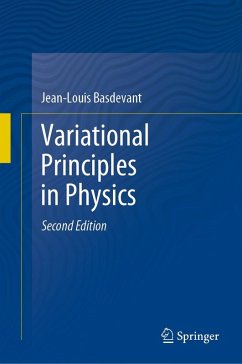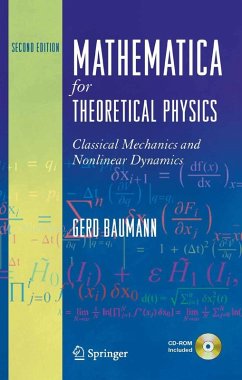
Variational Principles in Physics (eBook, PDF)
Versandkostenfrei!
Sofort per Download lieferbar
56,95 €
inkl. MwSt.
Weitere Ausgaben:

PAYBACK Punkte
28 °P sammeln!
Variational principles have proven to be surprisingly fertile. For example, Fermat used variational methods to demonstrate that light follows the fastest route from one point to another, an idea which came to be known as Fermat's principle, a cornerstone of geometrical optics. This book explains variational principles and charts their use throughout modern physics. The heart of the book is devoted to the analytical mechanics of Lagrange and Hamilton, the basic tools of any physicist. The book also offers simple but rich first impressions of Einstein's General Relativity, Feynman's Quantum Mech...
Variational principles have proven to be surprisingly fertile. For example, Fermat used variational methods to demonstrate that light follows the fastest route from one point to another, an idea which came to be known as Fermat's principle, a cornerstone of geometrical optics. This book explains variational principles and charts their use throughout modern physics. The heart of the book is devoted to the analytical mechanics of Lagrange and Hamilton, the basic tools of any physicist. The book also offers simple but rich first impressions of Einstein's General Relativity, Feynman's Quantum Mechanics, and more that reveal amazing interconnections between various fields of physics.
Dieser Download kann aus rechtlichen Gründen nur mit Rechnungsadresse in A, B, BG, CY, CZ, D, DK, EW, E, FIN, F, GR, HR, H, IRL, I, LT, L, LR, M, NL, PL, P, R, S, SLO, SK ausgeliefert werden.













